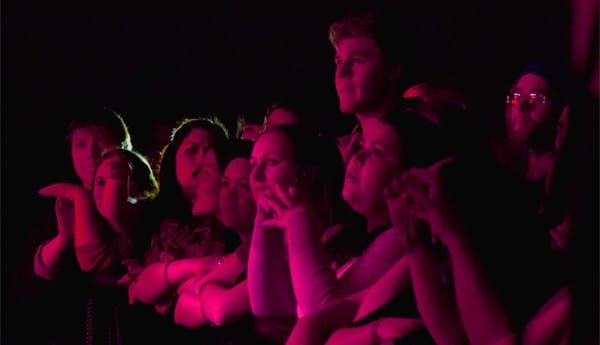
Music concerts at schools come with special circumstances that are not usually found at commercial "for-profit" venues. Schools, from the local elementary to the largest college campus in the country, face the same challenge - financial transparency, return on investment and creating a memorable experience for the students. This post lists some of the "do's and don'ts" for campus concerts.
Campus Concerts - Trade Secrets
Every music venue owner is all too aware of the overhead costs of an event. Fortunately for them, their for-profit business is a private endeavor, and they need only answer to themselves when it comes to the bottom line. Schools and universities do not enjoy the same level of financial privacy since their expenditures must be made accountable to the larger governing body. That body can be a board of trustees, or the PTA, but the burden is the same. Some schools get the burden of accountability right, some get it wrong. All schools can learn from the examples in this post.
Concerts on campus are one of the most popular extracurricular activities, second only to athletics in terms of head count and tickets distributed. Unlike athletics however, music concerts are under the control of the school itself. When a major musical act performs at a school, it is basically treated as just another venue by the band's booking agent. Appearance fees are 100% applicable when Maroon 5 plays at a college or at the city stadium. The stadium does not have to disclose what dollar amount was paid for the appearance fee. A college practicing the same opacity may find itself in a minor controversy.
Ohio state student's tuition represents a substantial amount of money, a small percentage of which is spent on things like concerts and outdoor festivals. There is a reasonable expectation that a school should have extracurricular activities for students to enrich campus life. The university's Ohio Union Activities Board (OUAB) is tasked with booking and paying popular musicians to perform on campus. OUAB in turn negotiates the terms either with band's booking agent of with a third party promoter.
In 2010, Leah Wynalek wrote of the costs of concerts on the campus of Ohio state University, specifically the appearance fees for major music acts not being revealed by the promoter. In her post for the Lantern, Wynalek's describes how the OUAB hires a third party promoter to bring a major music act to play for the students. The crux of the matter is the lack of transparency. From Wynalek's 'Trade Secrets' post:
OUAB often competes with other entertainment venues in the area and other schools for the same acts," Eyer said. "Competitors having knowledge about the amounts we pay for performers would adversely affect our ability to negotiate the lowest possible rates and therefore reducing the buying power of the student activity fee dollars."
She also said OUAB could not disclose amounts paid to performers when contractual obligations with the bands or booking agencies forbade it from making the information public.
Fred Gittes, a Columbus attorney with expertise in Ohio's public records law, said a trade secret must be information that is "treated as confidential by the company or organization involved." In this case, it must be treated as confidential by the bands OUAB books as well as any booking agencies involved.
However, many performers make their prices known publicly on college booking agency websites. Upon request, some public universities' activities boards, including those of the University of Iowa and Michigan State University, also disclose booking costs.
To OUAB's credit, the concert ticket distribution policy is very clearly stated on their website but, as Wynalek discovered, the appearance fees are not. The report goes on to compare OUAB opaque practices with that of other universities, citing their requirement to disclose the costs of campus concerts.
It would be easy to say that the OUAB is caught between a rock and a hard place, and be sympathetic to the seemingly contradictory mandates. Bidding for major music acts like Maroon 5's only area appearance, against aggressive for-profit venues, is no trivial assignment. The Activities board has opened up to be more transparent on its expenses, coming much closer to the way other universities disclose costs. Lesson learned - don't be secretive about costs, let trustees/parents know how much your spending upfront.
Worth The Money?
Once a school has established an acceptable transparent policy, the very next issue that may manifest itself as a direct result is entertainment value - is the cost of a campus concert worth the money?
That was the exact question Lex Menz, co-Editor-in-Chief of The College Times, asked earlier this week. Menz looked at the dollar amounts spent by Western Carolina University (WCU) over the course of the last year. WCU's students have enjoy big name acts as well as upcoming ones that fall into to the "indie rock" genre. The point of contention that Menz focuses on is if the third party booking agent "does not book artists that the mass majority of students enjoy"
“I never felt like the concert was all that great when it comes to the feel of an actual concert, and I was never interested in the musicians playing,” said communications major Matson Henderson, who never attended an LMP concert.
“I think they've done a better job this year, than in previous years,” said social work major Matthew Patterson, who has only attended two concerts since arriving at WCU in 2009. “I mean even though I didn't see the 3Oh!3 concert, I saw it as a change from the old line ups in previous years. I think LMP should conduct or continue to conduct student surveys on the bands or artists that interest the students. I also feel like LMP could look into promoting local bands in the Cullowhee and Asheville area. Also, less country would be nice,” he added.
Since schools are not expected to turn an outright profit on a campus concert, the notion of return on investment may become a bit fuzzy. Looking at the financial records for the 3Oh!3 concert, there were just 776 tickets sold for a total of $8,400 (student ticket prices were $10 and $15). Minus $1,440 in expenses (the $259.50 credit card fee was paid by FPAC this time), that meant a total of $6,960 in revenue. WCU paid $41,000 paid to book 3OH!3 through a third party. That substantial loss is being attributed to the lack of interest in the band by the students.
Schools wishing to avoid similar results should establish a robust communication channel to ask and be able to listen to what bands the student body wants to see. The feedback should be under the control of the school, then made available to the third party booking agent, not the other way around. Allowing the third party agent to decide what bands get booked for concerts on campus will rarely result in big attendance numbers. The booking agent's interests are not necessarily the interests of (fickle) college kids. Lesson learned - do the research and find out what student want.
Co-curricular Experience
In addition to transparency and return on investment, there is a third factor for schools to consider when planning a campus concert - the student's experience.
Ryan O'Connell wrote on the CampusLabs' blog a noteworthy division of labor table that all schools may want to review. CapusLabs make software for schools to manage all their administrative duties, extracurricular activities being just one. O'Connell uses Duke University's wildly popular 'Last Day of Class' concert series (as seen in the video above) as the example of a school that does campus concerts very well. The post encourages schools to divide the responsibility of a concert between the staff and facility under its control and a third party booking agent. From the post:
As many campuses prepare for these events a great deal of planning, coordination, and marketing are being handled by professionals, para-professionals, and student leaders. As I thought about my friends back at Duke University planning for LDOC this year and Union Productions recent Diplo/Sleigh Bells show down at Florida State University I began to consider how CollegiateLink is like a campus concert, and as any event planner knows… a great concert is more than a good performer.
If you start to think about your technology products as ongoing components of your co-curricular experience (like a concert) then it may become easier to incorporate the systems into your daily conversations and reflections with colleagues and students.
O'Connell hits the nail on the head with that last sentence which serves as the summary solution for each issue outlined in this post. Lesson learned - Don't forget that the overall experience is for the students, and a memorable experience is more than the sum of its parts.
 One aspect of the student experience is getting tickets to the concert. Depending on the the fame of the act booked to perform, campus concert tickets may become so sought after equitable distribution becomes all but impossible. The students may come to expect preferred treatment, deservedly so if their tuition is what funds the show, but the lure of offering tickets to the public for a profit is a siren song difficult to ignore.
One aspect of the student experience is getting tickets to the concert. Depending on the the fame of the act booked to perform, campus concert tickets may become so sought after equitable distribution becomes all but impossible. The students may come to expect preferred treatment, deservedly so if their tuition is what funds the show, but the lure of offering tickets to the public for a profit is a siren song difficult to ignore.
Tasks like tiered ticket distribution, deferred ticket sales to the public, or reserved seating, are part of the ticketing software being used. Schools can take control of ticket sales, and avoid the pitfalls of over-reliance on third parties, by using a ticketing software build with their needs in mind.
ThunderTix offers online ticket sales schools need for extracurricular events and campus concerts. Our technology powers everything from big concert venues to neighborhood recitals, and everything in between. We help universities manage having Taylor Swift on Campus as well as the "stampede of parents" at K-12.